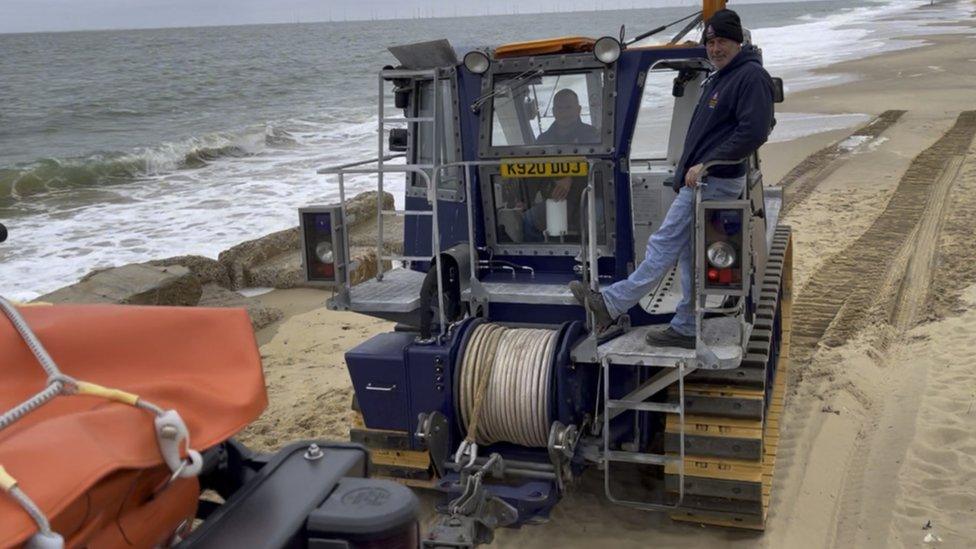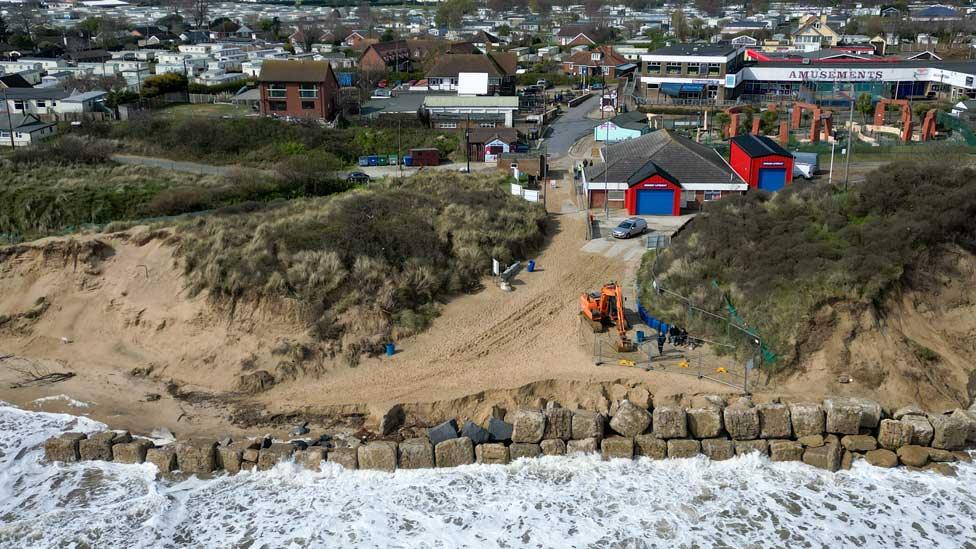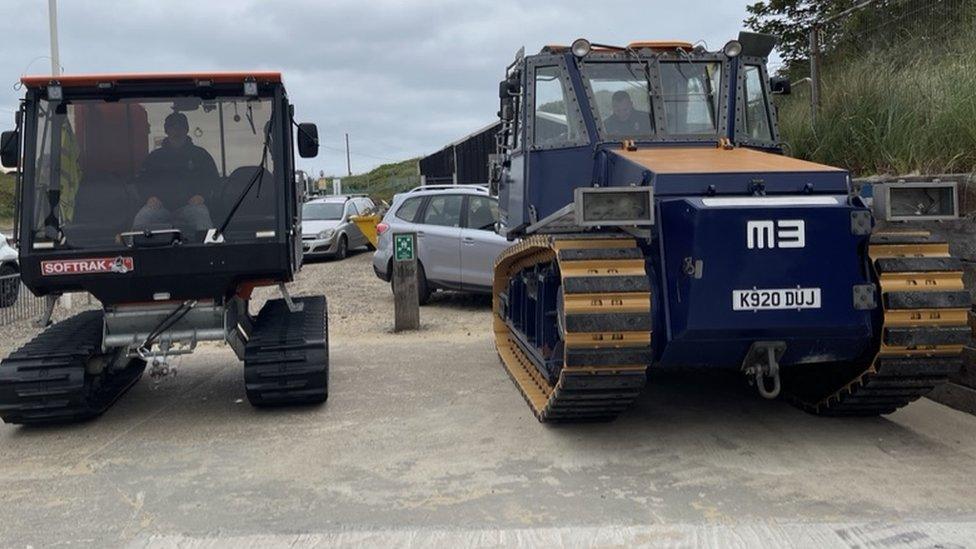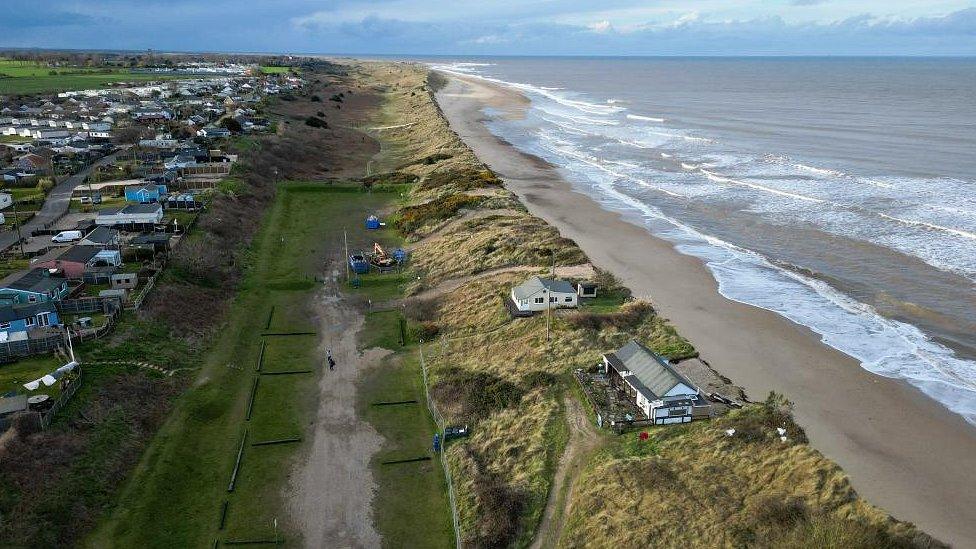Hemsby's new lifeboat launcher overcomes erosion challenge
- Published

The new launcher is a reconditioned RNLI vehicle, funded by the local community
Lifeboat crews said they hoped to get into the water quicker and overcome beach erosion issues thanks to a new launch vehicle.
Hemsby lifeboat was out of action recently after its access ramp washed away.
Coxswain Daniel Hurd said even though the team had rebuilt the ramp, the existing launcher had struggled with the effects of erosion.
He said the refurbished RNLI launcher would "allow us to keep operational".
It is expected to be up and running in a couple of months' time.

Hemsby Lifeboat Station has repeatedly had to suspend operations due to coastal erosion
Hemsby, near Great Yarmouth in Norfolk, has been plagued by coastal erosion, with several homes recently being demolished before they collapsed into the sea.
The instability of the beach has also affected the lifeboat service, which had to suspend operations in April after its access ramp disappeared during high tides.
Mr Hurd told the BBC a combination of unstable soft sand and the incline up to the station meant "we could get the lifeboat into the sea, but not back up again".
Saving time
He hoped the new, larger vehicle - a 19-tonne Talus ILB, which used to belong to the Royal National Lifeboat Institution - would save vital minutes during sea rescues.
"It's ideal for getting a lifeboat from the station to the sea," said Mr Hurd.
"It will save time, get us down there quicker to launch. Then we can also get the boat back and turn it around more quickly for another call-out.
"Bear in mind when we go to sea and come back, we've normally got to spend an hour or more to clean down, refuel and come back out again. This new machine could probably knock 45 minutes off that time."

The Talus ILB launcher (right) weighs 19 tonnes and can go into deeper waters than the existing launcher (left)
Mr Hurd said another advantage of the new machine was that it could move into deeper waters compared with the current Softrak launcher.
"It can be completely submerged and it won't be damaged. It's ideal for winter months particularly," he said.
Chris Batten, a helm and trustee at Hemsby Lifeboat, said it had spent £15,000 on the Talus and a further £30,000 to bring it up to a standard "that would ensure a long operational lifespan".
It was funded by the local community, through individual fundraising and big public events.
"We can't thank the public enough for their support," said Mr Hurd.

Follow East of England news on Facebook, external, Instagram, external and Twitter, external. Got a story? Email eastofenglandnews@bbc.co.uk , externalor WhatsApp on 0800 169 1830
Related topics
- Published21 April 2023

- Published7 April 2023

- Published17 March 2023
